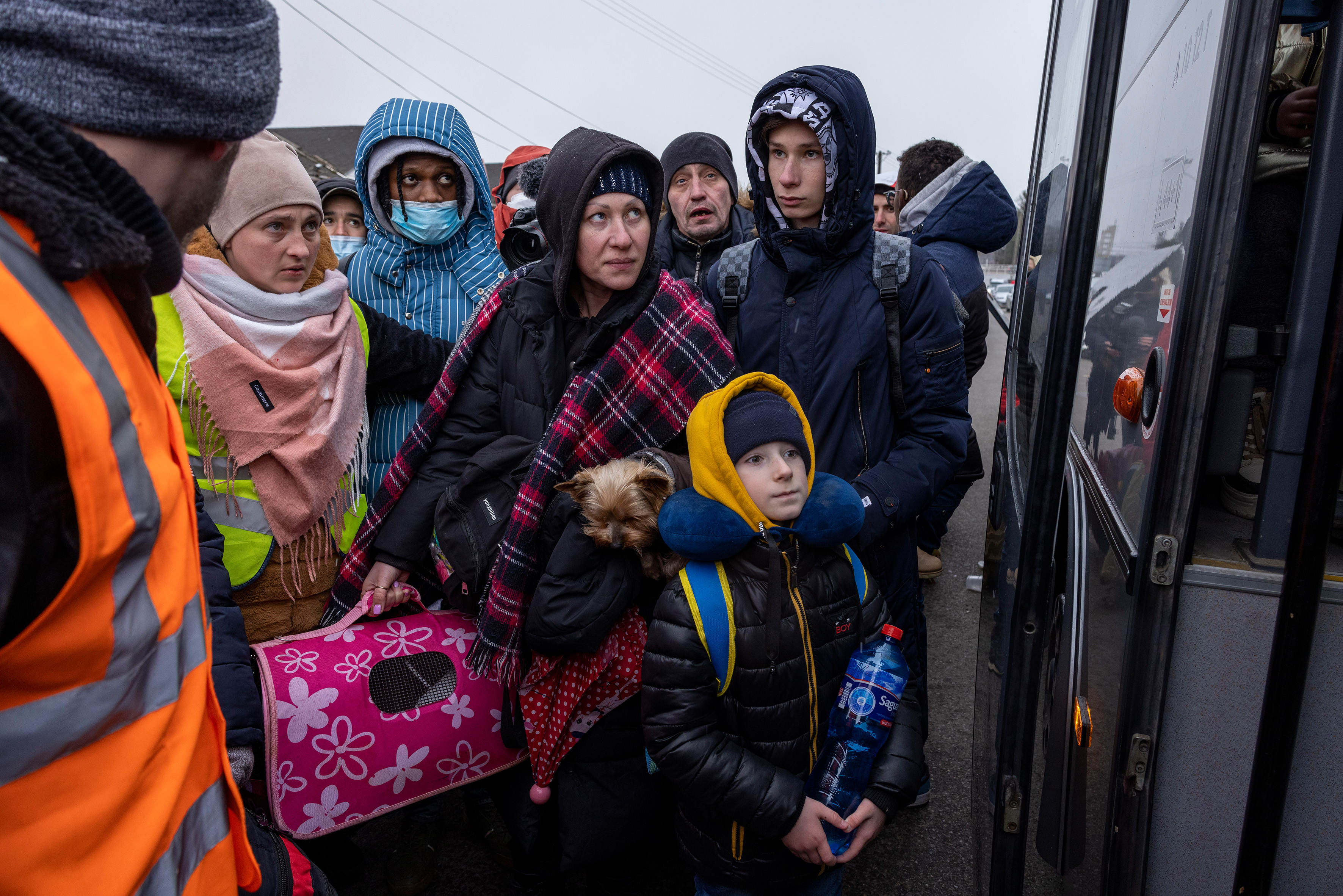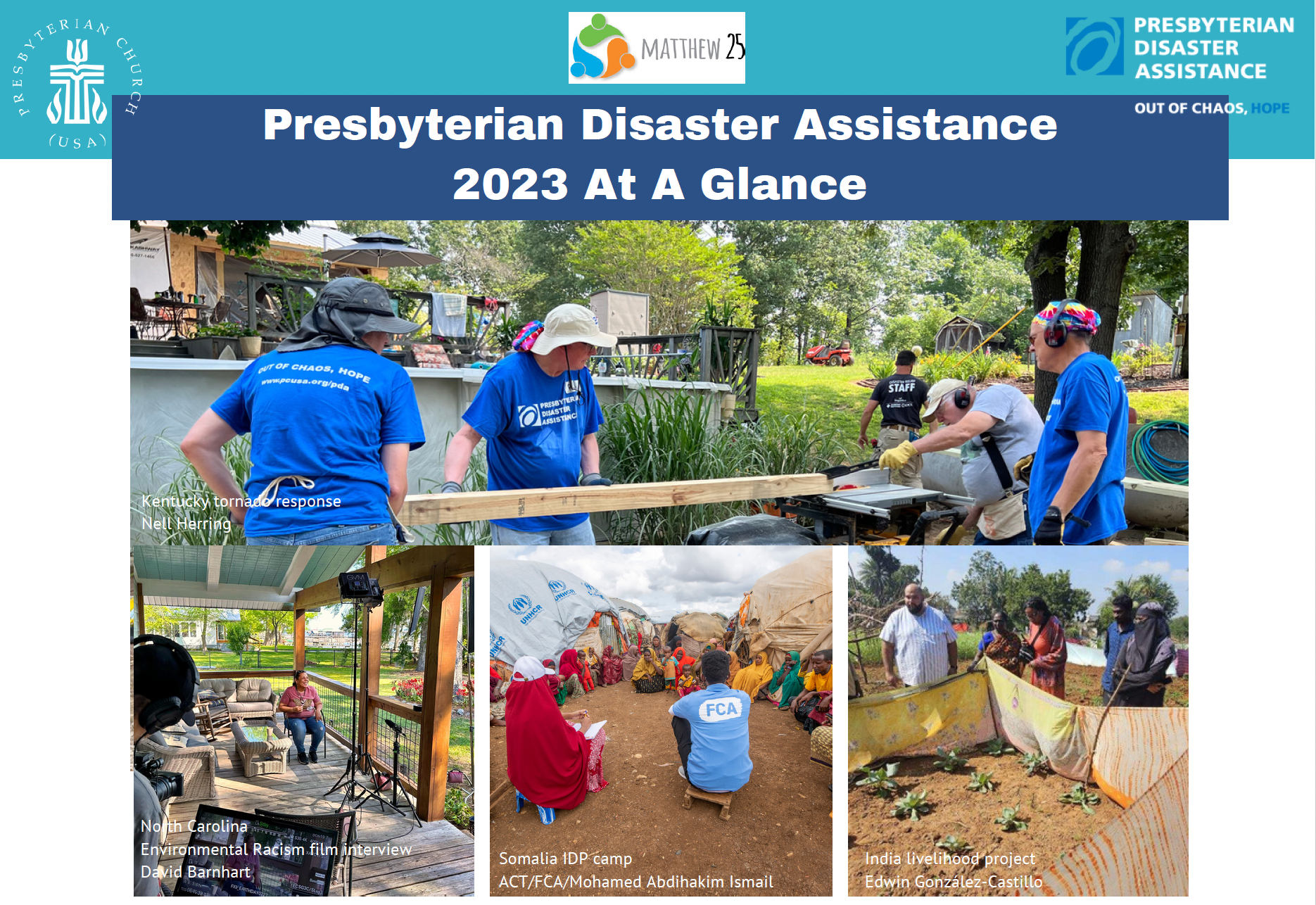Ukraine

— ACT/DKH/Frank Schultze
The Russian invasion of Ukraine on February 24, 2022 was a serious escalation of a conflict that goes back 8 years. Between February 24 – June 15, 2022 about one third of Ukrainians have been forced from their homes: over 7.5 million Ukrainians have crossed international borders becoming refugees and over 7 million also displaced within Ukraine. (Source: UNHCR Situation Reports) As long as the war continues, the situation will be very dynamic and humanitarian needs are likely to change.
Read the 2024 report HERE.
To support our response, designate gifts to DR000156 or text PDAUKR to 41444
Particularly vulnerable groups include older persons and persons with disabilities, who may be unable to flee or may stay in the impacted areas, resulting in risks to their lives, struggles to meet daily needs and challenges in accessing humanitarian assistance. People fleeing Ukraine whose nationality is other than Ukrainian are also particularly vulnerable as they have been prevented entry at some borders, sometimes fall outside the legal framework for assistance resulting in fewer publicly available services. This group includes international students as well as the Roma who lived in Ukraine.
Due to the restriction on men leaving Ukraine, the majority of Internally Displaced Persons (IDPs) and refugees are women with children. Many are women with young children, now serving as the head of their household. Women and girls are susceptible to various forms of gender-based violence, sexual exploitation and abuse, including conflict related sexual violence.
As the violence continues, the number of people on the move increases by the day. There are also reports of over 2 million border crossings back into Ukraine since the conflict started for a variety of reasons. Fortunately, in the midst of the chaos, there are sibling churches and ecumenical partners who are providing assistance inside Ukraine and in throughout the region. Our first priority as PDA is to provide funding to these partners on the ground. While the scale of this crisis is new, receiving refugees from Ukraine and other countries in Central and Eastern Europe is not. That means we have trusted, established partners with the knowledge and expertise to carry out this important work.
PC(USA) Humanitarian Aid is provided inside Ukraine through grants to St. Egidio (an ecumenical organization based in Ukraine) and the International Orthodox Christian Charities. Support for refugees in the neighboring countries is being sent to the ACT Alliance due to its ability to provide coordination in the response and reporting for: Hungarian Interchurch Aid, Hungarian Reformed Church Aid, Lutheran World Federation, the Evangelical Church of Czech Brethren and others.
Emergency assistance has focused on items such as cash assistance for food, housing and other basic needs, psycho-social support, transitional housing (private and public), registration assistance and information and referrals. By May 2022, relief organizations were already shifting their focus to longer term housing, language instruction, school enrollment and other services to support refugees who intend to stay in the host country until the conflict ends. PC(USA) partners are also involved in coordination meetings with local and national governments, other non-governmental organizations (local, national and international) as well as with the UN agencies. Such coordination is extremely important to ensure people receive the necessary support, to avoid both the duplication of efforts and from people falling through the cracks.
ACT Alliance Situation Report - July 27
Presbyterian Mission Agency Summary of the PC(USA) Response to the Russian Invasion of Ukraine
Ecumenical Letter for Peace in Ukraine
Faith letter urging the U.S. to seek negotiated peace with Russia
As of June, PDA has received more than $8 million to support the people of Ukraine. Thanks to the generosity of Presbyterians, PDA will be able to support our partners. This includes the longer term housing, psycho-social and integration services for refugees who remain in Hungary, Romania, Czech Republic and Poland. It will support on-going humanitarian aid inside Ukraine, as well as the future rebuilding and reintegration when the war comes to an end and it is safe for people to return. As the situation continues to evolve, PDA may extend its response to other countries.
Watch the webinar from 3/23 for an overview of the situation and PDA's response:
Watch this update from PDA from 3/14 on our initial emergency response:
